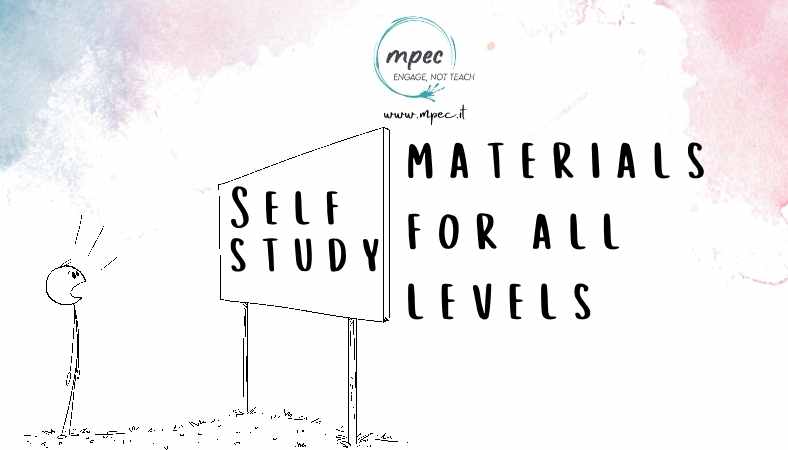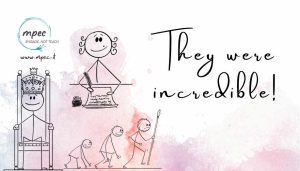At My Personal English Coach (MPEC), we believe that learning never truly ends, especially when it comes to mastering a new language. This page is dedicated to our students of (almost all) levels.
Whether you’re currently following an MPEC Course or are getting close to finishing your training, you’ve landed on the right page. Here, we provide all the essential self-study materials you need to work in full autonomy, adding value to your sessions with the MPEC coaches. Building a structured Self Study routine will ensure that the knowledge you’ve gained is not just retained but also expanded.
Materials, sure, but most of all: IT’S ABOUT HABITS!
Developing solid and regular habits is crucial for long-term success in learning a new language. We strongly advise students to find 15 to 30 minutes every day to dedicate to studying English. This daily commitment, even if brief, is essential because it allows for consistent engagement with the language, thereby strengthening acquired skills and facilitating the learning of new concepts.
Dedicating a bit of time each day to practice not only helps consolidate knowledge but also transforms the study of English into an integral part of your daily routine, making it less burdensome and more of a natural habit. Moreover, this approach significantly boosts confidence in the language, as regular and repeated exposure gradually eliminates the anxiety associated with using English and improves fluency in speaking and understanding.
We therefore encourage students to choose a time of day when they feel most receptive and least distracted to dedicate to learning English. This small investment of daily time will lead to significant improvements over weeks and months, bringing you ever closer to mastering the language.
Essential English Grammar in Use (A1-A2)
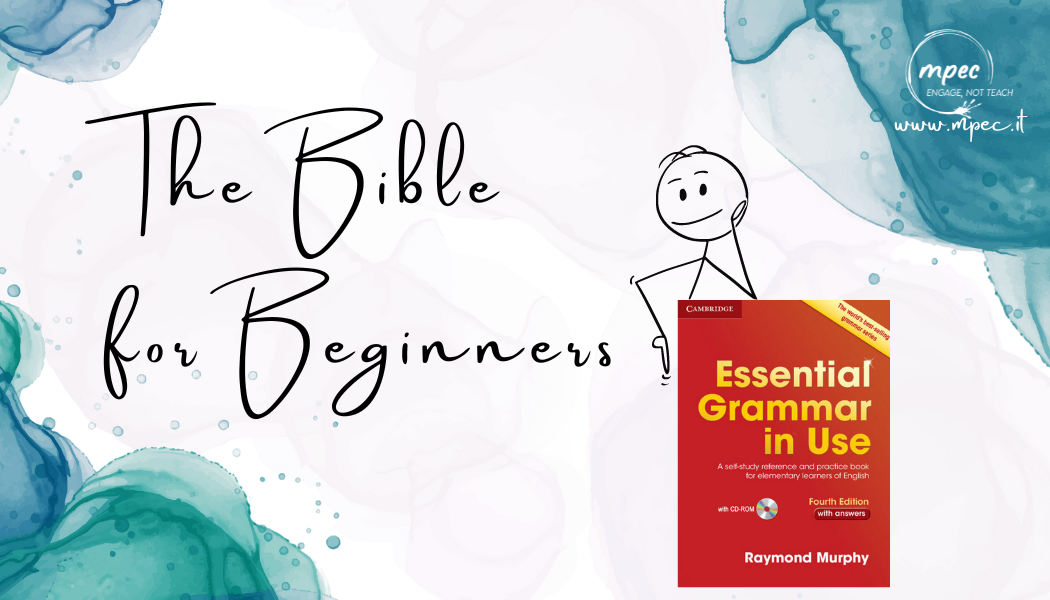
Perfect for beginners, this book offers short, manageable units that make learning English grammar straightforward and effective.
Choose a unit, engage with the theory, and apply what you’ve learned in practical exercises. Then, check your answers to consolidate your understanding. This approach ensures that you can study at your own pace and see real progress in your language skills.
The BIBLE: English Grammar in Use (B1-B2)

If you’re looking for a challenge or feel that the A1-A2 book is no longer testing your limits, our B1-B2 grammar book provides the next step up in complexity.
It’s ideal for those who wish to deepen their knowledge and tackle more complex aspects of the English language.
Wait a minute! I need more Business Vocabulary to work in English!
We know, we know! We’ve got your back! Here are two great books to focus on Business English in your self study.
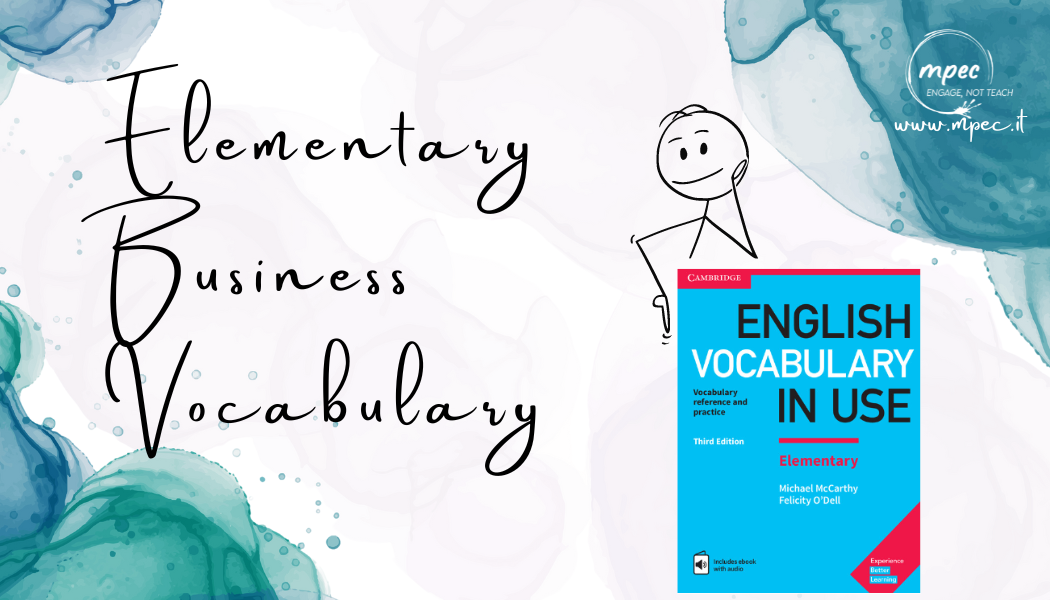
Focusing on business English from the start? This book covers essential terminology and phrases needed in the business world, suited for beginners up to intermediate learners.
It’s a great tool to boost your confidence in professional settings.
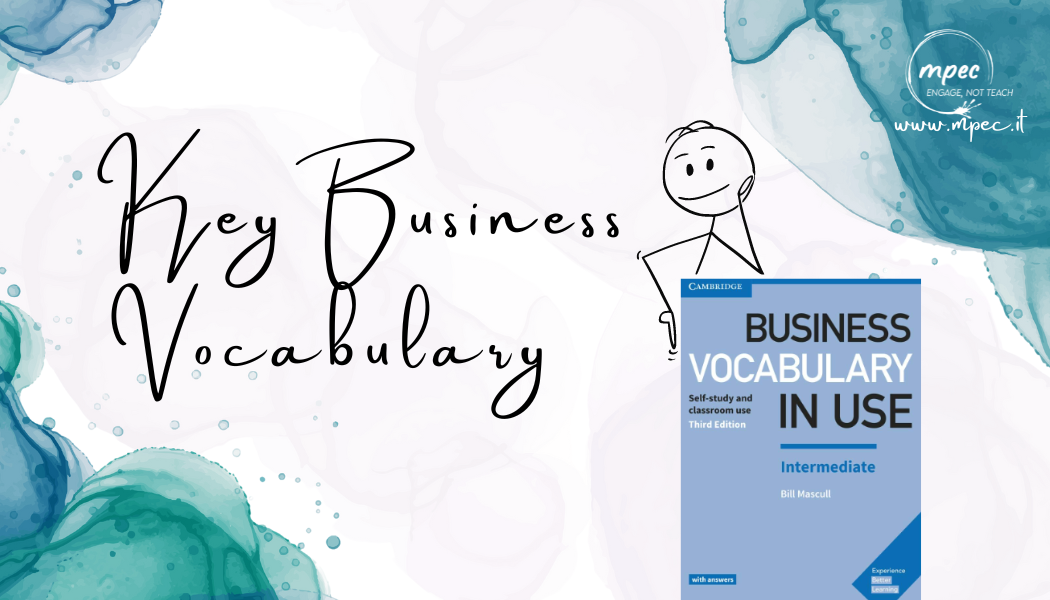
Looking for a real Business English boost?
Enhance your business vocabulary further with this intermediate-level book. If you are ready to expand your professional language skills, this resource will provide you with the necessary tools to do so effectively.
All these books help you structure a time for independent and autonomous self-study. They do not require the presence of a teacher and help you feel independent in your learning process. However, if you feel the need to practice speaking and lack confidence in conversations, presentations, etc., we are here for you! Get a short, tailor-made course focused 100% on speaking, communicating, and building confidence in English!
Looking to Boost Your Motivation? Here’s the secret of language learning…
Bibliography and Scientific Foundation of Our Approach:
Self-Awareness and Core/Belief Limitations
Cognitive Behavioural Therapy (CBT): Introduced by Aaron Beck, this theory suggests that our thoughts (including core and limiting beliefs) directly influence our feelings and behaviours.
Neuroplasticity: Studies such as those presented by Doidge (2007) in his book “The Brain That Changes Itself” demonstrate how our experiences and thoughts can alter the structure and function of the brain.
Schema Therapy: Developed by Jeffrey Young, this extension of CBT aims to identify and restructure deeply ingrained thought patterns or ‘schemas’, which are often at the root of limiting beliefs.
Emotional Intelligence
Mayer and Salovey Model (1990): Defines emotional intelligence through four main skills: perceiving emotions, using them to facilitate thinking, understanding emotions, and regulating emotions.
Emotional Intelligence: This book by Daniel Goleman (1995) popularised the concept of emotional intelligence to the general public, advocating its impact on leadership, success, and personal well-being.
Adult Language Learning
Critical Age Hypothesis: Studies such as those by Lenneberg (1967) suggest that there is an optimal time window for language learning, but subsequent research indicates that adults can still effectively learn a second language through appropriate strategies and motivation.
Bandura’s Social Learning Theory (1977): Emphasises the importance of modelling, imitation, and observation in learning, including the acquisition of new languages.
Affective Factors in Language Learning: The study by Gardner and Lambert (1972) on motivational orientation highlights how attitudes and motivations significantly influence language learning in adults.
… And The Journey Continues!
The journey towards learning English, or any new language, is full of psychological barriers that go beyond the simple linguistic challenges. It is a battle against our innate aversions to loss and our tendency to focus on the negative.
However, with awareness, strategic approaches, and a change in perspective, these barriers can be successfully navigated. Remember, the goal is not to replace your proficiency in Italian, but to expand your horizons, one English conversation at a time.
Utilizing these resources, you can effectively supplement your learning with MPEC or continue growing after your course ends. Our aim is to ensure that your journey in English continues beyond our classrooms, turning your newfound skills into deeper understanding and greater confidence

The MPEC Team Is Here For You!
Remember, the MPEC team is always here to support you. Whether it’s Suzanne, Ramps, Ed, Helen, or your personal coach, we are all dedicated to your success in English. Do not hesitate to contact us if you need guidance, have questions, or simply want to share your progress.
Review MPEC and Share Your Experience
We love hearing from our students! If you’ve had a positive experience with MPEC and feel inspired to share, please leave us a review. Your feedback not only motivates us, but also helps others find the support they need to succeed. Here is the link:
#ApprendimentoLingue #PsicologiaLinguaggio #DanielKahneman #ImparareInglese #PadroneggiareInglese #SuperareBarriere #CompetenzeLinguistiche #FluenzaInglese #PsicologiaLingua #ApprendimentoInaspettato #BiasCognitivi #TeoriaDelProspetto #AvversioneAllaPerdita #BiasNegatività #MentalitàDiCrescita #ViaggioLinguistico #ParlareInglese #SfideInglese #VitaBilingue #AmantiDelleLingue #Linguistica #IntuizioniPsicologiche #CambioDiMentalità #CompetenzeComunicative #Poliglotta #ConsigliStudioInglese #MotivazioneLinguistica #PauraDiParlare #AbbattereBarriere #EsplorazioneLinguistica #MPECEnglish #AutoStudioSuccesso #GrammaticaInglese #IngleseCommerciale #ApprendimentoLingue

